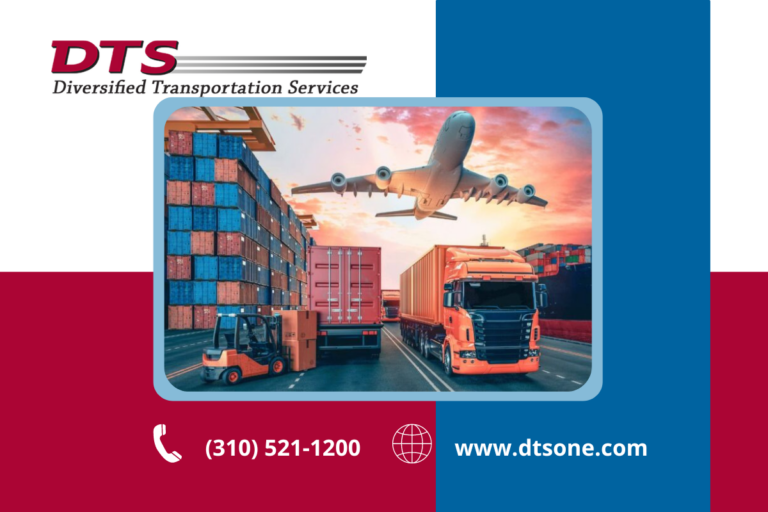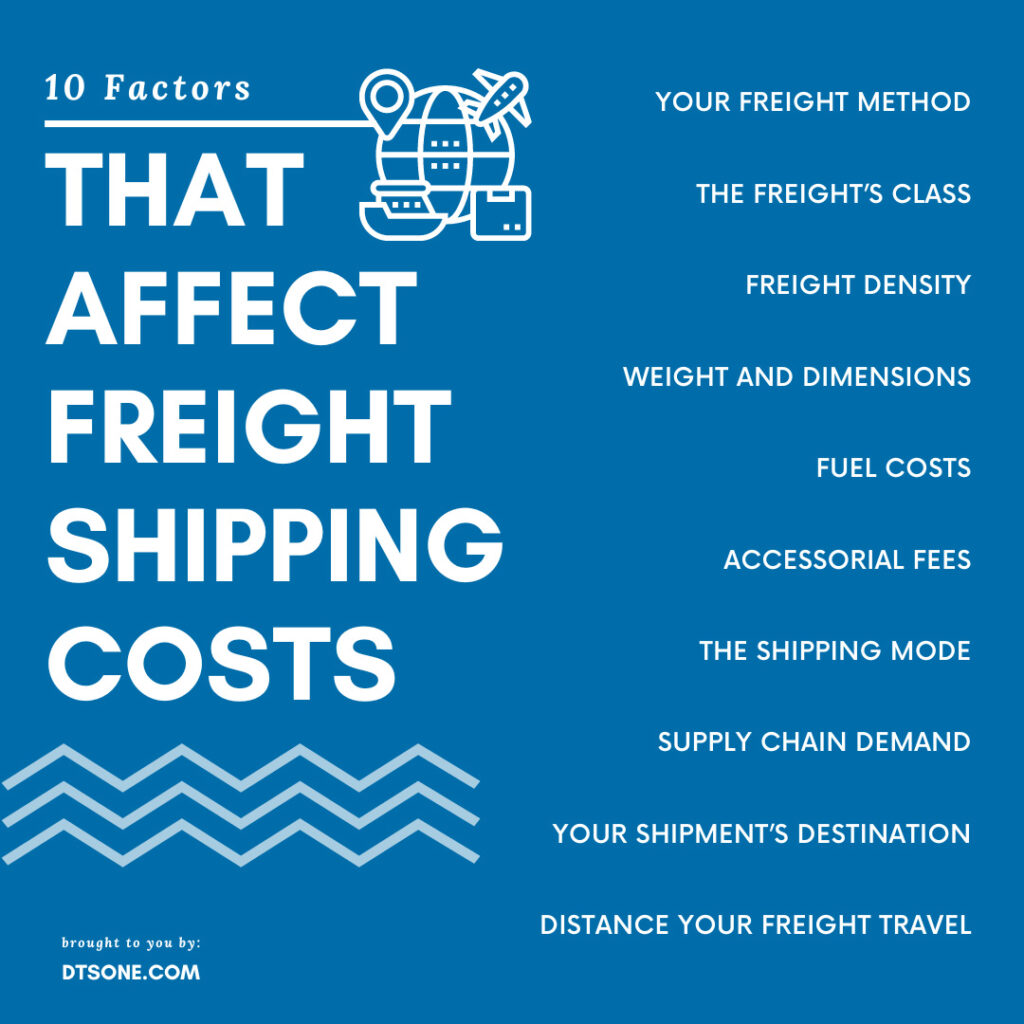
When running a business, you end up wearing many hats. It’s your responsibility to make sure that every step of your operation moves as efficiently as possible. You do all this while keeping economic efficiency in mind and knowing where your money will be key when adjusting budgets.
If your business utilizes freight shipping, you will know how surprisingly complicated it is to get an accurate cost. So many factors go into the overall price of your shipment haul. Understanding the factors that impact your freight cost is the best way to know if you’re getting the best deal out of your operations. Learning about the elements allows you to make cost-effective changes to your shipping strategy.
Explore these 10 factors affecting freight shipping costs to help you and your business make the best logistics solutions.
Several factors influence your shipping rate, and no one wants to pay more than necessary for freight operations. Freight rates can vary from company to company, so different quotes may involve different factors. However, there are a handful of main elements that influence your shipping costs.
When deciding which freight service is best suitable for your business, it’s important to understand that whichever you choose will determine the cost of your service. The four common types of shipments are:
Each freight method has pros and cons, but you should choose one based on your priorities and expectations. Air and sea freight transportation are the two most common transport methods.
While air transportation offers an expedited solution, it has a higher price tag. On the other hand, sea transport is perfect for those transporting bulky and heavy cargo but will take longer to reach its destination.
Your freight class is the standard shipping industry pricing measurement and classification. Created by the National Motor Freight Traffic Associates, it helps provide a common ground for all LTL shipping businesses and carriers. This system makes logistics and negotiations more productive and smoother.
These four elements determine freight class:
One of the most important factors influencing freight shipping costs is your freight’s density. The density is the weight of the space your shipment occupies. This measurement will help determine your shipment’s type and overall pricing. Knowing your freight’s density will greatly affect your shipping operation.
The carrier will factor the dimensions and weight of your shipment into the overall pricing. You’re typically charged per mile or hundred pounds if you’re shipping your items in a trailer or truck. However, if your shipment is LTL, your shipment’s weight and dimension greatly influence the cost.
Similar to other markets, fuel costs can influence the pricing of your freight shipping expenses. When fuel costs increase, shipping rates will increase, and vice versa because fuel is the major source of our transportation. Our trains, planes, trucks, and cargo ships need fuel to transport your goods from one place to the next.
For those who ship domestically, it’s important to know that shipping items state-to-state can also influence your shipping costs. State fuel rates vary based on state and local tax laws. So, it’s important that you estimate these surcharges to factor them into your budget.
If your shipment requires special instructions for drivers, as is the case with residential deliveries, redelivery requests, or private gate entries, those costs will also factor into your shipping fees. Ideally, commercial shipping is best suited to dock-to-dock shipping.
This makes it easier for our transporters, and any deviation can be inconvenient. Issues that arise could result in an accessorial charge on your final bill. Make sure to discuss with your 3PL or carrier service what they consider assessorial.
The shipping mode refers to how much freight you are shipping and how fast you need your shipment delivered to its destination. You can choose expedited shipping if you need something shipped immediately. However, if you’re more flexible, you can select a deferred option.
Your freight shipping rates can also vary depending on how the freight ships. There are four types of modes:
Unfortunately, supply chain changes and demand increases also impact the freight shipping industry. If your transport method has limited space, the carrier may increase its pricing to premium rates. However, if shipping is slow, you could see a dip in pricing. The number of carriers and 3PL businesses in your area can also influence your shipping cost.
As stated before, if your shipment poses any sort of inconvenience or requires special instruction, you could see additional charges. This aspect of the process also applies to your shipment’s destination. The harder it is to deliver your cargo, the more your freight shipping will cost. If you need your shipment delivered to the following location examples, you may see extra fees:
The further your freight goes, the higher the cost. Whether you’re shipping your items internationally, regionally, or across the country, the mileage will influence your pricing. The fuel and labor required to get your shipment to its destination are things the company will account for and factor into the expense. However, it’s important to still shop around and compare quotes to get the best deal.
Partnering with a trusted shipping logistics company will help save time and money along the way. At DTS, we have a team of logistics professionals that aim to give you the highest standard of service. We go out of our way to find the best freight shipping solutions for your business. Contact us today for more information.

Whether you're a company looking to improve one facet of your supply chain, your entire supply chain, or simply looking for a transportation and logistics consultation, we can help.